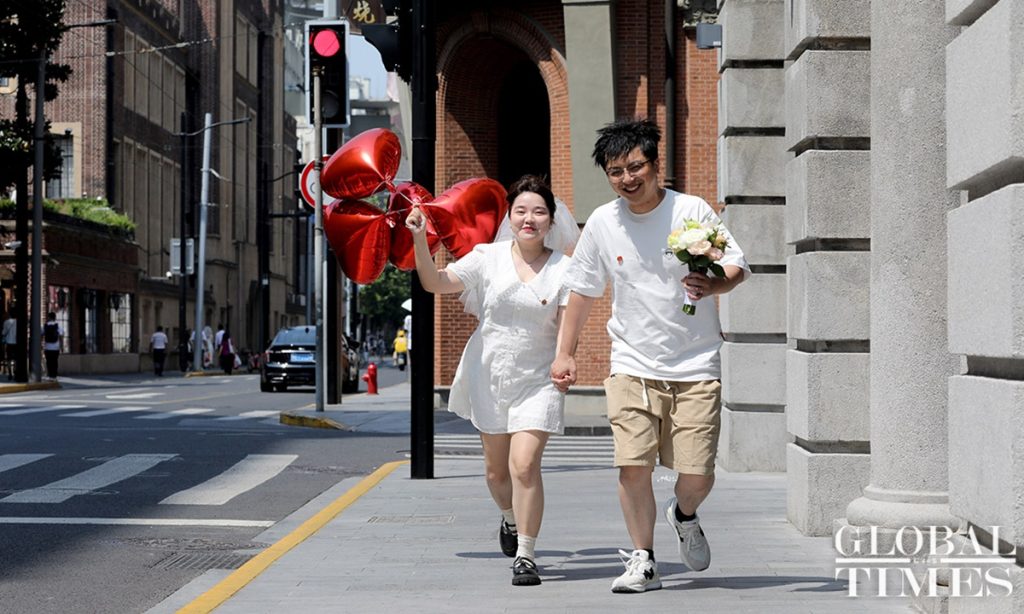China releases revised draft regulation on marriage registration for public comment

China's Ministry of Civil Affairs recently released the revised draft of regulation on marriage registration for public comment. The revised content includes an individual's household register not being required and no regional restrictions for marriage registration, which experts believe will streamline the process and help build a family friendly society.
The public can submit their feedback before September 11, according to the civil affairs ministry.
The revised draft points out that the regulation is formulated based on Civil Code of the People's Republic of China and other laws. According to the draft, the country will enhance information-based marriage management, improve the national marriage information database, and establish an information-sharing mechanism to ensure that marriage data is timely, accurate, complete, and secure.
In comparison to the original regulation on marriage registration issued in 2003, the draft removes the requirement to present a household register during marriage registration.
There will no longer be regional restrictions for registration, with the original regulation requiring that it should be handled at the household registration location of the parties involved.
Jiang Quanbao, a professor from the Institute for Population and Development Studies at Xi'an Jiaotong University, told the Global Times on Wednesday that the original regulation has been implemented for more than 20 years, which requires revision and updating in face of changing social habits.
The draft standardizes marriage registration, safeguards marriage freedom and equality, and helps build a family friendly society in many aspects including simplified procedures, said Jiang.
The draft calls for marriage registration authorities to provide marriage and family counseling services, fully leverage the expertise of professionals, and guide the parties involved in marriage to establish equal, harmonious, and civilized marital and family relationships.
Jiang said that this also helps enhance its service function, giving marriages with potential for reconciliation another chance to be saved, and helping to prevent impulsive divorces.
In the chapter on divorce registration, the draft further elaborates on the cooling-off period for divorce, stating that within 30 days from the date the authority receives the divorce registration application, if either party is unwilling to divorce, they may withdraw the divorce registration application. Then the marriage registration authority shall terminate the divorce registration process.
The regulation aims to "promote the importance of marriage and family," reduce impulsive divorces, and uphold social stability, and better protect legitimate rights of the parties involved, according to Jiang.
If one party is coerced into marriage, the coerced party can request cancellation of the marriage according to law. If one party has a serious illness, they should truthfully inform the other party before the marriage registration; if they do not truthfully inform the other party, the other party can request termination of the marriage, the draft details.
China's local authorities have implemented multiple measures to establish a family friendly society over recent years, such as creating traditional Chinese group wedding ceremony for young couples, implementing cross-regional marriage and divorce registration pilot policy.
According to data from the Ministry of Civil Affairs, 3.43 million couples in China registered for marriage in the first half of this year, down by 498,000 couples during the same period from 2023.